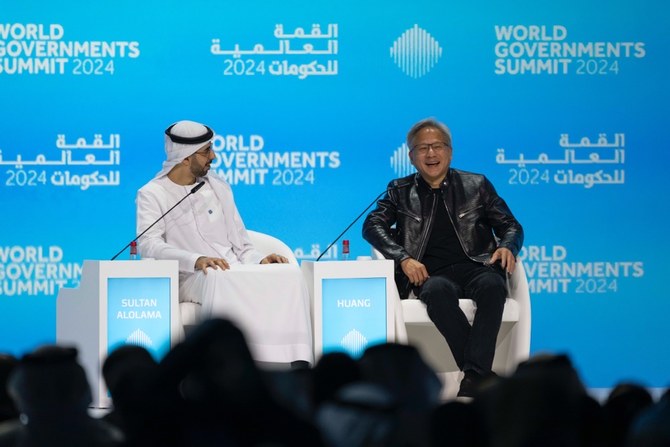
- ARAB NEWS
- 02 May 2024

As the World Governments Summit concluded in Dubai on Wednesday, after its various forums spent nearly three days delving deep into a comprehensive agenda, there was widespread agreement that — in a sign of the times — one theme dominated most discussions from curtain raiser to closing remarks: artificial intelligence.
This shouldn’t be surprising. As we have learned every day since last year, AI is not — and will not be — a standalone topic: it is going to influence every aspect of our lives. As one leading UAE official put it, AI will impact us in the same way that the invention of the wheel did, with so many applications already in use and much uncharted territory ahead: from curing cancers, to space exploration, to better understanding the human mind — about which, despite all our knowledge, we still comprehend so little.
One thing we must do is to take AI out of the traditional “capital vs. labor” discussion
Faisal J. Abbas
One thing we must do is to take AI out of the traditional “capital vs. labor” discussion, as one senior technology company officer explained to me. We must accept that there will be a huge impact on future jobs, and move beyond that to the bigger picture of what AI means for all of humanity, and specifically for our region.
As it stands, we Arabs — particularly Gulf states such as Saudi Arabia, Qatar and UAE — are well placed to be at the heart of the AI revolution. We have three competitive edges: a young population with curious, global minds; huge resources to deploy; and governments that are making this a priority. The UAE has the world’s first AI minister, and officials in Saudi Arabia have often spoken of the need to be at the forefront of technology. It is a priority because they understand that whoever masters this will have an edge for the rest of the century.
In fact, at last year’s World Governments Summit a senior official said during a private briefing that competition and cooperation between countries would no longer be over geopolitics, but techno-politics. The 5G conflict is an example, information warfare another.
The UAE has the world’s first AI minister, and officials in Saudi Arabia have often spoken of the need to be at the forefront of technology
Faisal J. Abbas
In his opening remarks on Monday, the UAE Minister of Cabinet Affairs Mohammed Al-Gergawi gave the audience a glimpse of what AI had already achieved in just one year. Its capacity for learning has multiplied 1,000-fold, for example, and that trajectory will continue exponentially. However, there is a flip side: the number of deep fakes has tripled in a year, with 500,000 on social media last year. This, too, will only multiply.
In the world of journalism, it says much about where traditional media models are going that an interview with Russian President Vladimir Putin by the prominent US talk-show host Tucker Carlson can generate more than 150 million online views — and this on his own channel under his own brand, since he no longer has a presence on mainstream TV.
If anything, I would argue that the need for high-quality professional journalism could not be greater. However, the truth is that from free content supported by advertising to subscription-only behind a paywall, and everything in between, we have not yet decided on a business model that would best suit the future.
There will be more on this next week, when I report from the Saudi Media Forum, where this topic will be discussed.
Twitter: @FaisalJAbbas